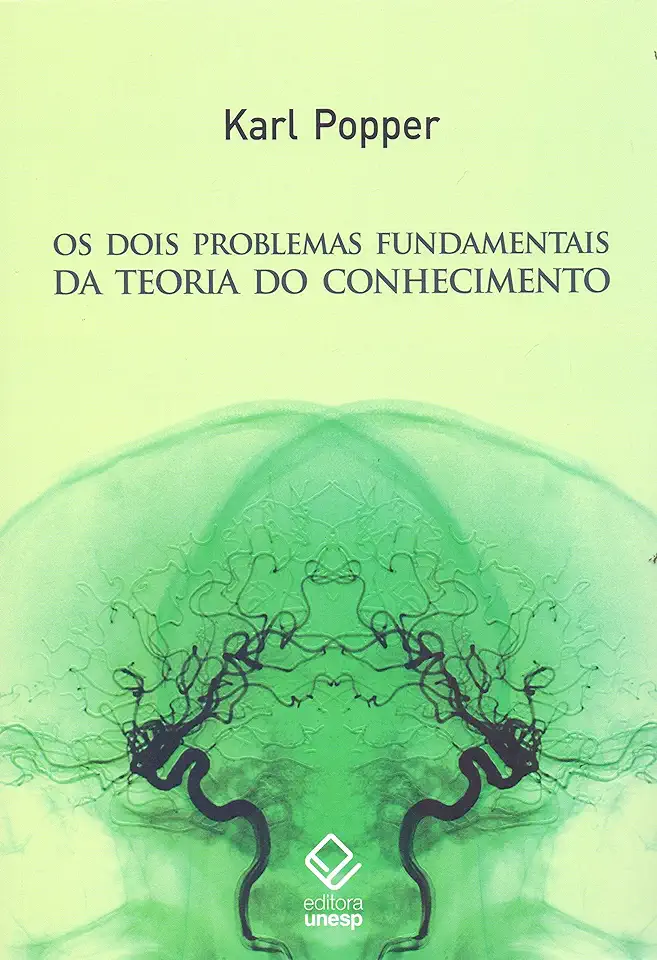
The Two Fundamental Problems of the Theory of Knowledge - Karl Popper
The Two Fundamental Problems of the Theory of Knowledge by Karl Popper
Introduction
In his seminal work, "The Two Fundamental Problems of the Theory of Knowledge," Karl Popper presents a groundbreaking analysis of the nature of knowledge and the challenges of epistemology. Popper argues that the traditional empiricist and rationalist approaches to knowledge are both inadequate and that a new approach is needed to address the fundamental problems of knowledge.
The First Fundamental Problem: The Problem of Induction
The first fundamental problem of the theory of knowledge, according to Popper, is the problem of induction. Induction is the process of inferring general laws from particular observations. For example, if we observe that all swans we have seen are white, we might infer that all swans are white. However, as Popper points out, this inference is not logically valid. It is possible that we will observe a black swan in the future, which would falsify our generalization.
Popper argues that the problem of induction is a serious challenge to traditional empiricist theories of knowledge, which hold that all knowledge is derived from experience. If induction is not a reliable method of acquiring knowledge, then it is not clear how we can ever be certain of any general laws.
The Second Fundamental Problem: The Problem of Demarcation
The second fundamental problem of the theory of knowledge, according to Popper, is the problem of demarcation. The problem of demarcation is the problem of distinguishing between science and non-science. Popper argues that the traditional criterion of demarcation, which holds that science is based on observation and experiment, is inadequate. He argues that there are many non-scientific theories that are based on observation and experiment, such as astrology and alchemy.
Popper proposes a new criterion of demarcation, which he calls the falsifiability criterion. According to Popper, a theory is scientific if it is falsifiable, meaning that it is possible to conceive of an observation that would falsify the theory. For example, the theory that all swans are white is falsifiable because it is possible to conceive of observing a black swan.
Popper argues that the falsifiability criterion is a more reliable criterion of demarcation than the traditional criterion of observation and experiment. He argues that the falsifiability criterion allows us to distinguish between scientific theories and non-scientific theories, and that it provides a way to test and improve scientific theories.
Popper's Solution to the Two Fundamental Problems
Popper's solution to the two fundamental problems of the theory of knowledge is his theory of critical rationalism. Critical rationalism is a philosophy of science that emphasizes the importance of criticism and falsification in the pursuit of knowledge. Popper argues that we can never be certain of any theory, but that we can improve our knowledge by subjecting our theories to criticism and testing them against the evidence.
Critical rationalism is a powerful and influential philosophy of science that has had a profound impact on the development of modern science. Popper's work has challenged traditional empiricist and rationalist theories of knowledge and has provided a new way of understanding the nature of knowledge and the pursuit of truth.
Conclusion
"The Two Fundamental Problems of the Theory of Knowledge" is a must-read for anyone interested in the philosophy of science and the nature of knowledge. Popper's groundbreaking analysis of the problems of induction and demarcation has had a profound impact on the development of modern science, and his theory of critical rationalism provides a powerful and influential framework for understanding the pursuit of truth.
If you are interested in learning more about the philosophy of science and the nature of knowledge, I highly recommend reading "The Two Fundamental Problems of the Theory of Knowledge" by Karl Popper.